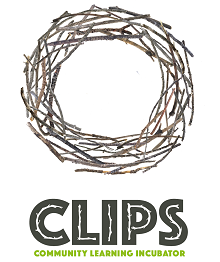Key points
- Creating new ways of living or solving societal problems can be challenging and require people to change and adapt in unexpected ways
- A mature, skillful and responsible way of dealing with emotions, beliefs, habits and attitudes is an important ingredient in successful community projects
- Cultivating a learner’s attitude enables people and groups to meet challenges thus nurturing individual and collective growth and creativity
- Shared frameworks for supporting personal growth can turn potential conflict into opportunities for connection and increase the group’s ability to reach its goals
- Transparent communication about intentions and commitment create synergies where collective goals and individual initiative combine to the benefit of both
- Joining a community project gives opportunities for meeting individual needs in collective ways.
Overview
Joining up with the conscious intention of working and living together creates both possibilities and challenges for the individual group member. The way a group functions in the long run, is dependent on how each individual responds to and deals with both. How we respond, in turn, often depends on our attitudes, our background, our personal needs and how we express them. It also depends on our openness to learn and improve skills for responding with greater awareness of ourselves, each other and our communities.
The willingness to create or live in community already indicates a person has a certain set of attitudes. These may be a willingness to take initiative and explore new territory, a wish to live in a different way than before, a longing to change the world for the better, or to live more in alignment with one’s ideals and values.
While positive and creative, the step to turn the search for alternatives into actual everyday life also challenges each individual’s habits, beliefs and patterns of behaviour; things that often go deeper than expected or that the individual is not necessarily aware of before they take the step into creating, working or living in community. On top of that, being in community requires members to collaborate and view their own beliefs, needs and priorities in relationship to the intention, agreements and aims of the group, and the personal beliefs, needs and background of other community members. This is a permanent process requiring people to examine and unlearn social norms, habits and behaviours that get in the way of realising their projects, and instead learn new ones that support the group and its members to realise their visions.
Because of this, starting or joining a community project is not only about creating new buildings, structures or ways of life, it can also be a journey of inner discovery, transformation and growth. How people approach this journey greatly impacts the harmony of relations and the capacity of the project to realise its intention and reach its goals.
Supported by new skills, a learner’s attitude and increasing awareness, community members can turn inevitable challenges into opportunities for realising both themselves and their project, and make the journey towards community a beautiful adventure full of new discoveries.







